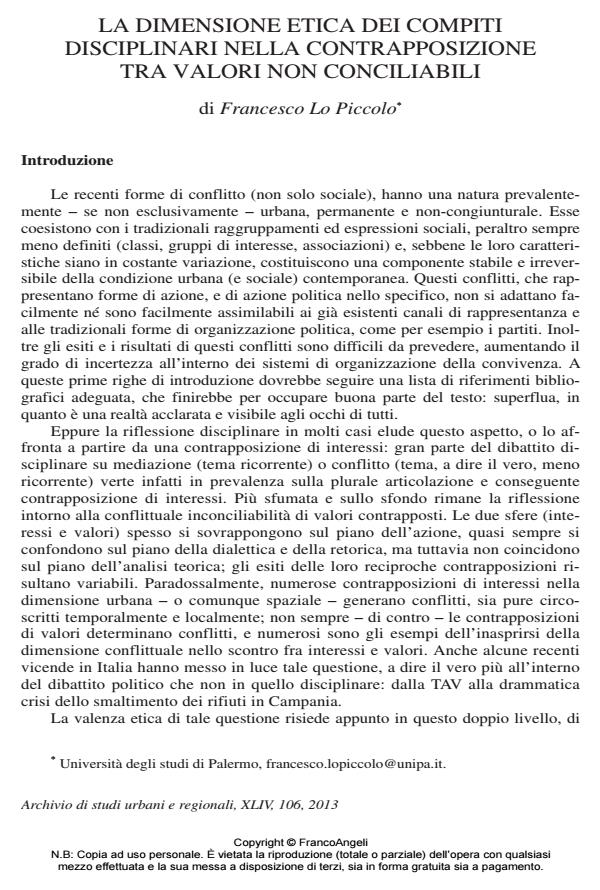La dimensione etica dei compiti disciplinari nella contrapposizione tra valori non conciliabili
Titolo Rivista ARCHIVIO DI STUDI URBANI E REGIONALI
Autori/Curatori Francesco Lo Piccolo
Anno di pubblicazione 2013 Fascicolo 2013/106
Lingua Italiano Numero pagine 7 P. 159-165 Dimensione file 89 KB
DOI 10.3280/ASUR2013-106015
Il DOI è il codice a barre della proprietà intellettuale: per saperne di più
clicca qui
Qui sotto puoi vedere in anteprima la prima pagina di questo articolo.
Se questo articolo ti interessa, lo puoi acquistare (e scaricare in formato pdf) seguendo le facili indicazioni per acquistare il download credit. Acquista Download Credits per scaricare questo Articolo in formato PDF

FrancoAngeli è membro della Publishers International Linking Association, Inc (PILA)associazione indipendente e non profit per facilitare (attraverso i servizi tecnologici implementati da CrossRef.org) l’accesso degli studiosi ai contenuti digitali nelle pubblicazioni professionali e scientifiche
- La violenza dello spazio allo zen di Palermo. un'analisi critica sull'urbanistica come strumento di giustizia Giuseppe Lo Bocchiaro, Simone Tulumello, in ARCHIVIO DI STUDI URBANI E REGIONALI 110/2015 pp.73
DOI: 10.3280/ASUR2014-110006 - Fear, Space and Urban Planning Simone Tulumello, pp.115 (ISBN:978-3-319-43936-5)
- Fear, Space and Urban Planning Simone Tulumello, pp.1 (ISBN:978-3-319-43936-5)
Francesco Lo Piccolo, La dimensione etica dei compiti disciplinari nella contrapposizione tra valori non conciliabili in "ARCHIVIO DI STUDI URBANI E REGIONALI" 106/2013, pp 159-165, DOI: 10.3280/ASUR2013-106015